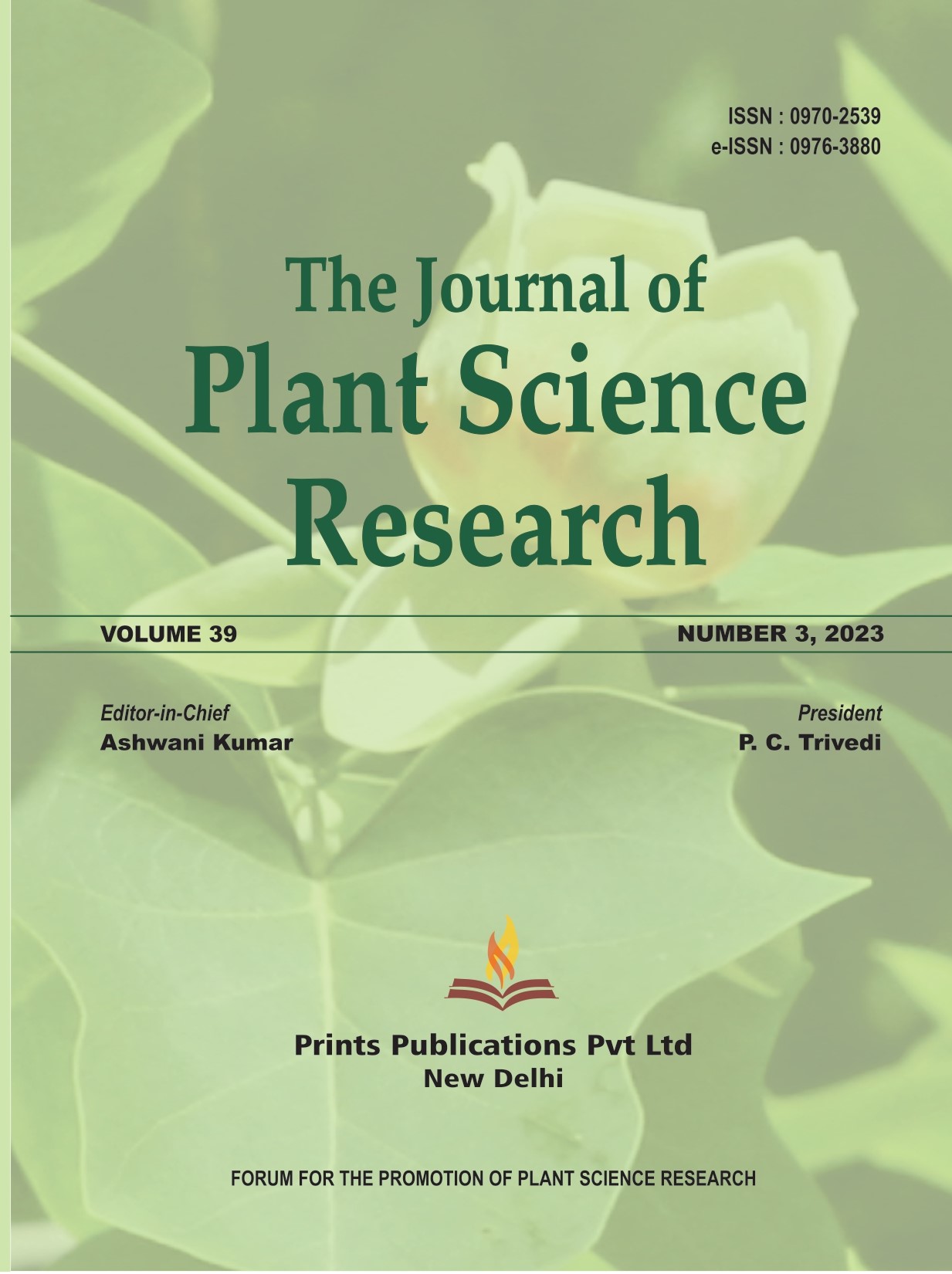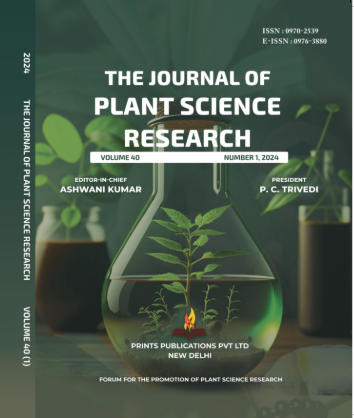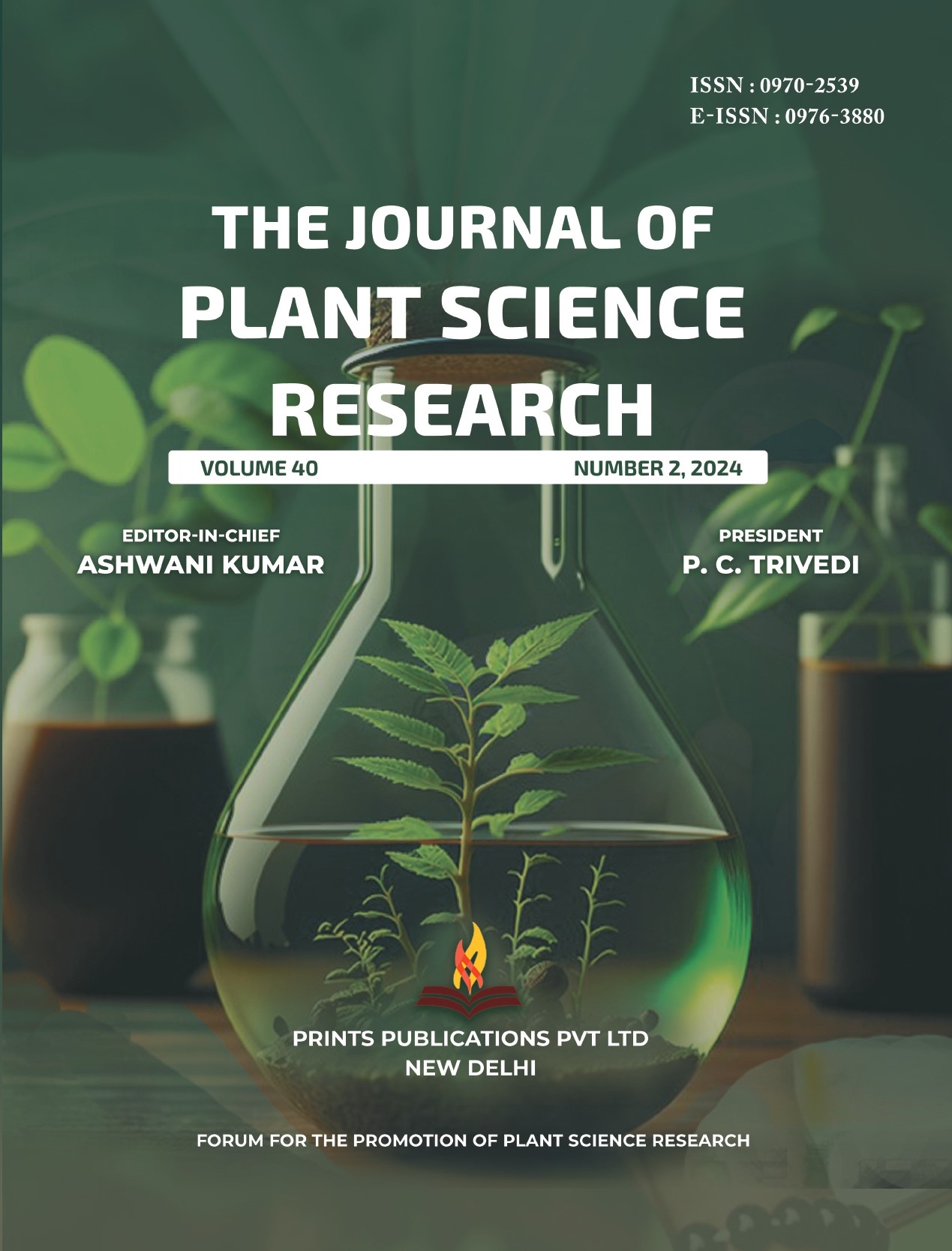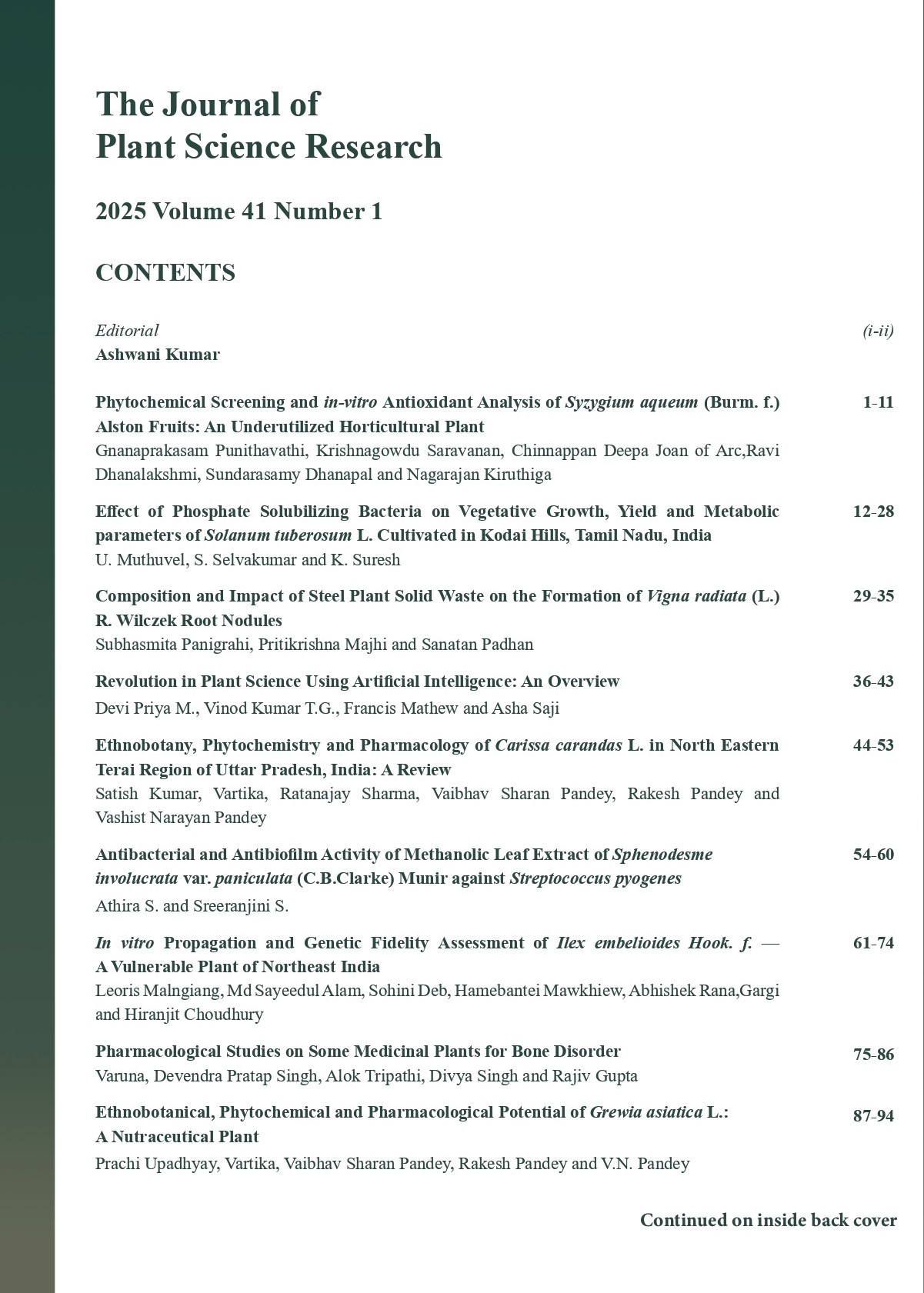The Journal of Plant Science Research - A UGC Care-Listed Journal
Published in Association with Forum For the Promotion of Plant Science Research
Current Volume: 41 (2025 )
ISSN: 0970-2539
e-ISSN: 0976-3880
Periodicity: Tri-annual
Month(s) of Publication: April, August & December
Subject: Botany
DOI: 10.32381/JPSR
Online Access is Free for Life Member
Heterosis and Inbreeding Depression Analysis in Bitter Gourd (Momordica charantia L.)
By : D R Bhardwaj, Akhilesh Kumar Singh
Page No: 791-800
Abstract
Experiment with 45 hybrids (F1s) under 10 x 10 diallel analysis was carried out to estimate the extent of heterosis over mid and better parents for yield and its contributing traits in bitter gourd. The inbreeding depression for various traits was also worked out. Analysis of variance indicated highly significant differences for almost all characters except plant height suggesting presence of wide genetic variability. The heterosis exhibited for fruit characters and fruit yield was mostly positive. Ten cross combinations (DVBTG-1 x VRBT-6, VRBT-94 x VRBT-39, VRBT-94 x VRBT-49, VRBT-94 x VRBT-103, VRBT-94 x VRBT-63, VRBT-94 x VRBT-32, VRBT-94 x VRBT-6, VRBT-41 x VRBT-6, VRBT-103 x VRBT-6 and VRBT-63 x VRBT-32) which recorded high heterosis for yield and also expressed high heterosis for yield components, indicating the additive or synergistic effect on the fruit yield. These cross combinations can be utilized for commercial exploitation and determining the strategies for future in bitter gourd hybrid development. The inbreeding depression results due to fixation of unfavorable recessive genes in F2 . In the present results high inbreeding depression indicates the presence of non-additive gene action (dominance and epistasis) for the traits like first male and female flower anthesis, fruit weight, plant height and number of fruits/plant. The minimum inbreeding depression was observed in cross VRBT-32 x VRBT-6 and VRBT-94 x VRBT-49.
Authors :
D R Bhardwaj and Akhilesh Kumar Singh
Principal Scientist (Veg. Sci.), Division of Crop Improvement, ICAR-Indian Institute of Vegetable Research, Varanasi, U.P.
DOI: https://doi.org/10.32381/JPSR.2022.38.02.32






